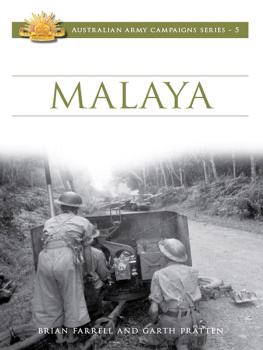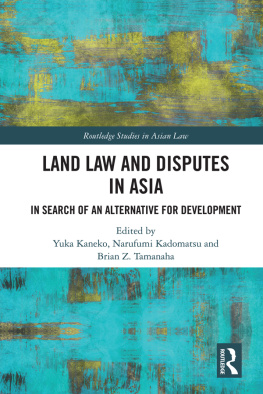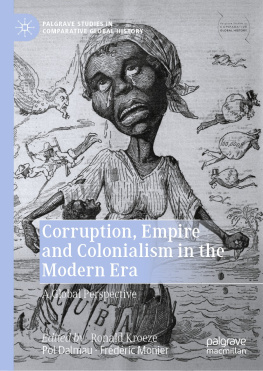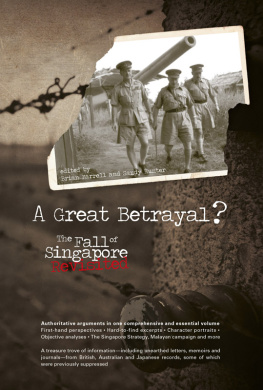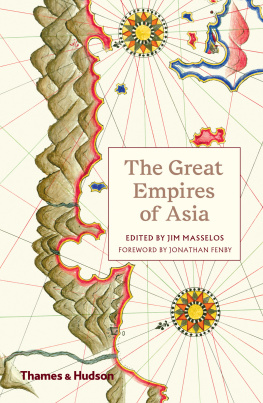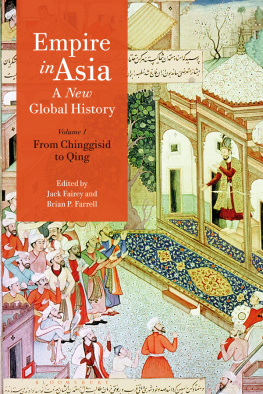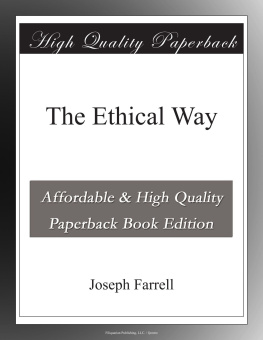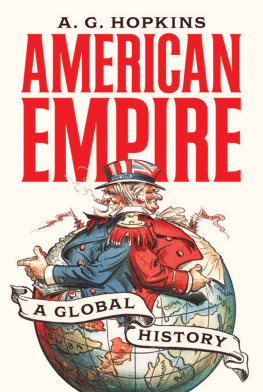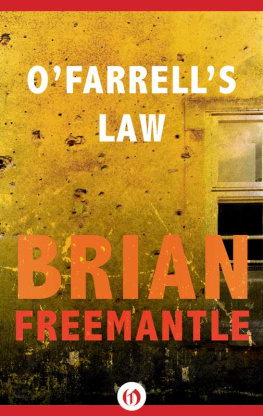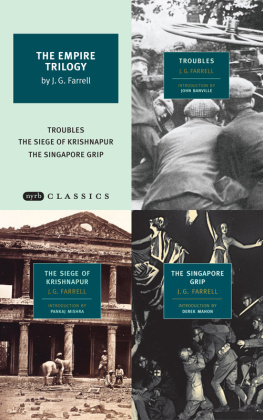Brian P. Farrell - Empire in Asia: A New Global History
Here you can read online Brian P. Farrell - Empire in Asia: A New Global History full text of the book (entire story) in english for free. Download pdf and epub, get meaning, cover and reviews about this ebook. publisher: Bloomsbury UK, genre: Politics. Description of the work, (preface) as well as reviews are available. Best literature library LitArk.com created for fans of good reading and offers a wide selection of genres:
Romance novel
Science fiction
Adventure
Detective
Science
History
Home and family
Prose
Art
Politics
Computer
Non-fiction
Religion
Business
Children
Humor
Choose a favorite category and find really read worthwhile books. Enjoy immersion in the world of imagination, feel the emotions of the characters or learn something new for yourself, make an fascinating discovery.

- Book:Empire in Asia: A New Global History
- Author:
- Publisher:Bloomsbury UK
- Genre:
- Rating:5 / 5
- Favourites:Add to favourites
- Your mark:
- 100
- 1
- 2
- 3
- 4
- 5
Empire in Asia: A New Global History: summary, description and annotation
We offer to read an annotation, description, summary or preface (depends on what the author of the book "Empire in Asia: A New Global History" wrote himself). If you haven't found the necessary information about the book — write in the comments, we will try to find it.
Empire in Asia: A New Global History — read online for free the complete book (whole text) full work
Below is the text of the book, divided by pages. System saving the place of the last page read, allows you to conveniently read the book "Empire in Asia: A New Global History" online for free, without having to search again every time where you left off. Put a bookmark, and you can go to the page where you finished reading at any time.
Font size:
Interval:
Bookmark:

Empire in Asia
Empire in Asia:
A New Global History
Volume Two
The Long Nineteenth Century
Edited by
Donna Brunero and Brian P. Farrell

Contents
Jack Fairey and Brian P. Farrell
Brian P. Farrell and Donna Brunero
Thomas David DuBois
Robert Bickers
John P. DiMoia
Bruce M. Lockhart
Brian P. Farrell
Paul W. Werth
Jack Fairey
Donna Brunero
Odd Arne Westad
Figures
Tables
These volumes emerged from a research project based in the Department of History, National University of Singapore, with which they also share a title. The investigators, editors, authors, and project members note with gratitude the support provided by the Singapore Ministry of Education through a research grant from the MOE Academic Research Fund, Tier 2, without which this work would not have been possible. Grateful thanks also to the Faculty of Arts and Social Sciences, as well as the Department, for understanding and support. Claire Lipscomb and Emma Goode from Bloomsbury were more patient than we deserved and very supportive, for which our thanks. Among the authors, special mention must go to Thomas DuBois for doing so much to launch the entire project in the first place. Miriam Kaminishi and Ishizu Tomoyuki made timely and welcome contributions to the project as a whole. Most welcome and effective research assistance was provided by Michelle Djong, Daniel Lee, Aloysius Ng, Sandeep Singh, Amelia Tan, Wilfred Teo, and Jennifer Yip. Last but not least, the many students who over the years have taken our course HY2245 History of Empires, Colonies and Imperialism have our gratitude for inspiring the whole idea in the first place.
Personal and Place Names
Personal names are generally given in the forms that will be most familiar to readers (e.g., Peter the Great instead of Ptr Velikii). A few notable exceptions have been made, however, to bring anglicized names closer to their original form: for example, Chinggis for Genghis, Qubilai for Kubilai, Tmr for Tamerlane, Chaadai instead of Chaghatai, and Humyn for Humayun. Similarly, place-names are generally given in their modern, official form, with a few exceptions made for places that are better known under their historic names: therefore, Cochin and Banquibazar rather than Kochi and Ichapore (but Melaka rather than Malacca). Batavia, Bombay, Calcutta, and Madras have also been used occasionally to refer to the cities of Jakarta, Mumbai, Kolkata, and Chennai, as the historic names also refer to the larger Dutch and British colonies and presidencies of which they were the capitals. For clarity, the modern official name will be given once in parenthesis upon the first use of such historic names.
Transliteration and Romanization
Non-English words are italicized upon first use only. Non-English words such as jihad, khan, and Sharia that have entered regular usage have not been italicized, nor has any attempt been made to transliterate them in any systematic fashion (so jihad rather than jihd). Words and names from languages written in non-Latin scripts are rendered according to the following systems.
Arabic: as per the system of the International Journal of Middle Eastern Studies
Chinese: as per the Pinyin system of romanization, without the diacritics showing tones
Greek: as per the American Library AssociationLibrary of Congress (ALA-LC)
Japanese: as per the Revised Hepburn system of romanization
Korean: as per the Revised Romanization of Korean (Gugeoui Romaja Pyogibeop) system
Manchu: as per the Mllendorff transliteration system
Mongolian: as per the system of Nicholas Poppes Grammar of Written Mongolian, modified by replacing , , and with ch, sh, and gh
Ottoman Turkish: as per modern Turkish orthography, except that final unvoiced consonants are left voiced (e.g., Ahmed not Ahmet and Mehmed not Mehmet)
Persian: as per the system of the International Journal of Middle Eastern Studies
Russian: as per the American Library AssociationLibrary of Congress (ALA-LC), slightly modified by removing all diacritic marks (e, ii, ts, iu, and ia for , i, ts, iu, and ia)
Sanskrit: as per the International Alphabet of Sanskrit Transliteration (IAST)
Robert Bickers is professor of history at the University of Bristol, and works on issues at the intersection of modern Chinese history, and the history of colonialism and empire. His books include Empire Made Me: An Englishman Adrift in Shanghai (2003), The Scramble for China: Foreign Devils in the Qing Empire (2011), and Out of China: How the Chinese Ended the Era of Foreign Domination (2017). He directs the Historical Photographs of China digitization project (www.hpcbristol.net) and currently leads a Hong Kong History Project. Britains imperial presence in Asia was an intermittent feature of his family history from 1885 for over a hundred years.
Donna Brunero is senior lecturer in history at the National University of Singapore. Her research focuses on the intersections between maritime and imperial history, with a particular interest in the colonial port cities of Asia and the treaty ports of China. She has published and has forthcoming works relating to the Chinese Maritime Customs Service, Britons in China, maritime ethnography, and colonial representations of piracy in Asia. She is coeditor of Volume Two of Empire in Asia, the author of Britains Imperial Cornerstone in China: The Chinese Maritime Customs Service, 18541949 (2006) and has a forthcoming coedited volume on material culture and port cities, titled Life in Treaty Port China and Japan (2018). Her current research project is on the representations of maritime Asia in the nineteenth century via East India Company journals.
John P. DiMoia was associate professor of history at the National University of Singapore from 2008 to 2016, and is now affiliated as a researcher with Department III of the Max Planck Institute for the History of Science (MPIWG), based in Berlin. He works on the history of (1) medical practices (biomedical, traditional) and (2) the development of systems of infrastructure in Northeast Asia (eighteenth to twenty-first century), especially for energy and the two Koreas.
Thomas David DuBois is a historian of modern China and transnational East Asia. He is the author of Sacred Village: Social Change and Religious Life in Rural North China (2005), Religion and the Making of Modern East Asia (2012), and most recently, Empire and the Meaning of Religion in Northeast Asia, Manchuria 19001945 (2017), as well as about two dozen scholarly articles on the legal, commercial, and religious history of Northeast Asia. His popular and scholarly work has been published in Arabic, Chinese, and Russian translation. His current project on Chinas animal industries is conducted in conjunction with scholars at Hulunbuir University and the Chinese University of Hong Kong
Jack Faireys research work deals primarily with the history of the Mediterranean and Eastern Orthodox Christendom, with a particular interest in empires, religion, and diplomacy. He was Ted & Elaine Athanassiades Post-Doctoral Research Fellow at the Program in Hellenic Studies at Princeton in 20052006, and has previously taught European, Ottoman, and Mediterranean history at the National University of Singapore, and before that at Queens University and York University in Canada. He is coeditor of Volume One of
Font size:
Interval:
Bookmark:
Similar books «Empire in Asia: A New Global History»
Look at similar books to Empire in Asia: A New Global History. We have selected literature similar in name and meaning in the hope of providing readers with more options to find new, interesting, not yet read works.
Discussion, reviews of the book Empire in Asia: A New Global History and just readers' own opinions. Leave your comments, write what you think about the work, its meaning or the main characters. Specify what exactly you liked and what you didn't like, and why you think so.


